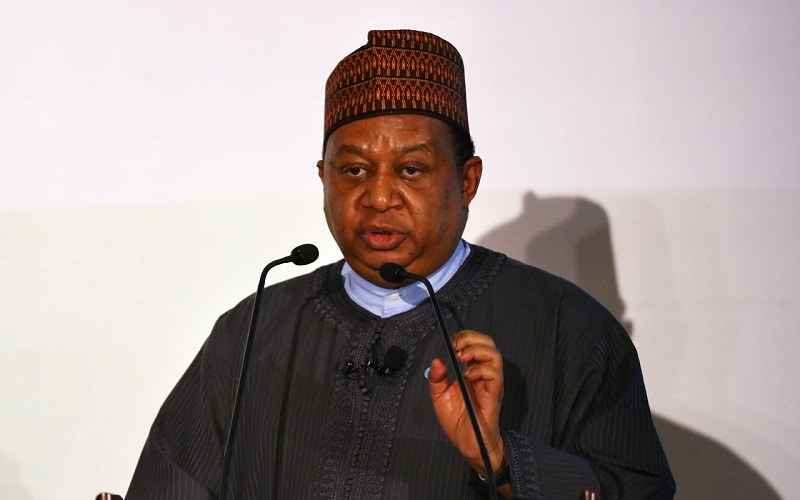BY MADUABUCHI EFEGADI
A former secretary-general of the Organisation of Petroleum Exporting Countries (OPEC), Mohammed Barkindo, has advised that there is no one-size-fits all pathway in the ongoing energy transition campaign.
Nigerian-born Barkindo, in a recent address at the Atlantic Council while reliving major events and developments that characterised the global oil industry in the last six years, said there is rather a “need to take an all-options approach, an all-solutions approach, and an all-technologies approach”.
He said OPEC fully believes that the oil and gas industry is part of the solution as it possesses vital resources and expertise that can help unlock the emission-free future.
According to him, four events stand out in the oil industry: the declaration of cooperation between OPEC and non-OPEC producers back in 2016 to counter the severe oil market downturn as a result of the global supply imbalance of 2014-2016; devastating impact of COVID-19 pandemic in 2020; renewed prominence geopolitics has taken in the oil market, particularly in 2022; and the evolving discourse around the energy transition.

Barkindo said the major events of the past six years all have two things in common: “globalization and multilateralism”. He looked at “issues that go to the heart” of the Atlantic Council such as: boardroom discussions devoted to questions regarding the future of globalization and multilateralism; investment patterns that have dominated the last three decades such as the idea of corporations opting for cheap offshore manufacturing and slick global supply chains holding costs down and keeping inflation levels low. He said these are being put to the test.
He said it is cooperation and multilateralism that will be vital to OPEC’s and the industry’s future.
For the former OPEC scribe, the deployment of sanctions and attempts to sever some countries from the global economic system have seen geopolitical fractures spill into the economic sphere.
He cited the recent address at Davos by Dan Yergin, vice chair of S&P Global, that he had “not seen such a focus on geopolitics in his 25 years of coming to the annual World Economic Forum meeting”.
“We should not be under any illusion that the attempt to ‘decouple’ economies or reverse globalization is a product of the 2020s… a refrain for many politicians over the last ten years,” Barkindo said.
According to him, many communities have expressed grievances at missing out on the opportunities that come from globalization, or feel aggrieved by it. This has also fed into a scepticism of multilateralism and the multilateral system.
He said the prospect of trade wars between the world’s two largest economies (US and China) has cast a long shadow over the global economy during the last six years; the unprecedented impacts of the pandemic, including ongoing supply chain disruptions; and anxiety about access to, and the costs of commodities and food, have also made contributions to this sentiment.
The fate of globalization, or at least the globalization in the form that we have known for the last three decades, possible geo-economic fragmentation, as well as the future of multilateralism, have consequences for the oil industry that are extremely complex, he said, declaring that these issues will dominate OPEC’s work for the foreseeable future.
Barkindo advised that the challenges before the oil industry were enormous and complex. He said with the recent strains and conflicts related to energy affordability, energy security, and the need to reduce emissions playing out in regions across the world at the end of 2021 and into 2022, focusing on only one of these issues while ignoring the others can lead to unintended consequences, such as market distortions, heightened price volatility, and energy shortfalls.
He said it requires a delicate balancing act, comprehensive and sustainable solutions, and all voices at the table. It is an energy sustainability trilemma, with each piece of the jigsaw having to fit together, he said.
“We need to ensure energy is affordable for all; we need to transition to a more inclusive, fair, and equitable world in which every person has access to energy as referenced in UN Sustainable Development Goal 7; and we need to reduce emissions. Oil has a role to play in each part,” he said.








